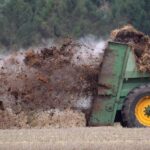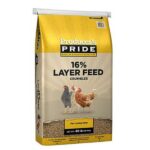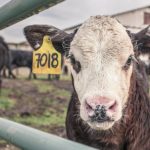Table of Contents
Chicken manure, a common byproduct in poultry farming, is often lauded for its high nutrient content, making it an excellent organic fertilizer.

However, there are serious health risks associated with inhaling this manure.
These dangers are not just limited to respiratory issues but also include infections, allergic reactions, parasitic diseases, exposure to biological toxins, and chemical hazards.
It’s important for those who work closely with chickens or use chicken manure in their gardens to be aware of these risks.
Importance of Safety Measures
The implementation of safety measures is critical in mitigating these risks.
This includes the use of personal protective equipment (PPE), such as masks and gloves, maintaining good hygiene practices, such as washing hands before and after handling manure, and ensuring proper ventilation in areas where chicken manure is stored and processed.
These safety measures, coupled with a deep understanding of the potential dangers, form the first line of defense against the dangers of inhaling chicken manure.
Respiratory Issues
Development of Asthma
Exposure to chicken manure can lead to the development of asthma, a chronic condition that results in the inflammation and narrowing of the airways.
The dust from dried chicken manure contains a variety of allergens and irritants that can cause inflammation in the lungs, leading to asthma.
Symptoms of asthma can range from mild, such as occasional shortness of breath, to severe, including frequent wheezing, chest tightness, and persistent coughing.
Over time, chronic inflammation can cause permanent damage to the airways, making it more difficult to breathe.
Chronic Obstructive Pulmonary Disease (COPD)
Chronic obstructive pulmonary disease, or COPD, is a long-term, progressive lung disease that can be exacerbated by exposure to chicken manure.
COPD encompasses several conditions, including emphysema and chronic bronchitis, both of which are characterized by long-term breathing problems and poor airflow.
Prolonged exposure to the dust from chicken manure can irritate the lungs and airways, leading to increased mucus production, coughing, and difficulty breathing – all hallmarks of COPD.
Infections
Bacterial Infections
Chicken manure can harbor a range of bacteria, many of which are capable of causing illness in humans.
Notable among these are E.coli and Salmonella, two bacteria that can cause gastrointestinal illness.
When chicken manure dust is inhaled, these bacteria can enter the respiratory tract, potentially leading to respiratory infections.
Symptoms of these bacterial infections can include fever, cough, chest pain, and difficulty breathing.
Fungal Infections
Fungi, such as Aspergillus and Histoplasma, are often present in chicken manure. These fungi produce spores that can become airborne and be inhaled, leading to fungal infections in the lungs.
In individuals with healthy immune systems, these infections may cause mild symptoms like coughing and wheezing.
However, in those with weakened immune systems, such as the elderly or individuals with HIV/AIDS, these infections can become systemic, affecting multiple organs and causing serious illness.
Allergic Reactions
Hypersensitivity Pneumonitis
Hypersensitivity pneumonitis, also known as farmer’s lung, is an allergic reaction that can occur when an individual inhales dust from moldy chicken manure.
This condition is characterized by inflammation of the alveoli, the tiny air sacs in the lungs where oxygen and carbon dioxide are exchanged.
Depending on the level of exposure and individual sensitivity, symptoms can range from mild, flu-like symptoms such as fever and chills, to more severe symptoms like coughing, shortness of breath, and chest pain.
Contact Dermatitis
While not directly related to inhalation, it’s worth noting that chicken manure can also cause skin reactions.
Contact dermatitis is a skin condition that can occur when the skin comes into contact with irritants or allergens, such as those found in chicken manure.
Symptoms include redness, itching, and swelling of the skin. In some cases, airborne particles from dried chicken manure can come into contact with exposed skin, leading to this condition.
Parasitic Diseases

Cryptosporidiosis
Chicken manure can be a host for the parasite Cryptosporidium, which causes the disease Cryptosporidiosis.
While the primary mode of transmission is through ingestion of contaminated water or food, it can also be contracted through inhalation of dust from contaminated manure.
Symptoms of Cryptosporidiosis include watery diarrhea, stomach cramps, nausea, and fever, and can last up to two weeks.
Toxoplasmosis
Toxoplasmosis is a parasitic disease caused by the Toxoplasma gondii parasite, which chickens can contract and pass on through their feces.
Although Toxoplasmosis is often associated with cat feces, chicken manure that’s contaminated with this parasite can also pose a risk.
Inhaling spores from contaminated chicken manure can lead to flu-like symptoms, including body aches, fever, fatigue, and swollen lymph nodes.
Biological Toxins
Endotoxins
Endotoxins are toxic substances that are released when bacteria die and break down. These toxins can be present in chicken manure and when inhaled, can trigger an inflammatory response in the body.
This inflammation can lead to symptoms like fever, chills, weakness, and in severe cases, septic shock.
Mycotoxins
Mycotoxins are toxic compounds produced by certain types of fungi. These toxins can also be present in chicken manure, especially if the manure is stored in damp conditions that promote mold growth.
Inhaling mycotoxins can lead to a variety of health issues, ranging from respiratory problems and immune suppression to neurological damage in severe cases.
Chemical Hazards
Ammonia Poisoning
Chicken manure contains large amounts of uric acid, which breaks down into ammonia. This pungent gas can cause serious health issues when inhaled in high concentrations.
Immediate symptoms can include irritation of the eyes, nose, and throat, coughing, and difficulty breathing.
Prolonged exposure can lead to more serious conditions like bronchitis, pneumonia, and in extreme cases, lung damage and even death.
Heavy Metal Contamination
Chicken feed can sometimes contain heavy metals like arsenic, which can end up in the manure.
When this contaminated manure dries and turns to dust, it can be inhaled, leading to potential heavy metal poisoning.
Symptoms of heavy metal poisoning can vary depending on the specific metal involved, but often include nausea, diarrhea, abdominal pain, nerve damage, and in severe cases, organ failure.
Mental Health Impact

Stress and Anxiety
The constant fear of potential health risks associated with inhaling chicken manure can lead to chronic stress and anxiety.
This can manifest in various ways, such as sleep disturbances, changes in appetite, irritability, and difficulty concentrating.
Over time, this persistent stress can have a significant impact on an individual’s mental well-being and overall quality of life.
Depression
The ongoing stress and anxiety, coupled with potential physical health issues, can also contribute to the onset of depression.
Depression is characterized by persistent feelings of sadness, loss of interest in previously enjoyed activities, and a lack of energy.
It’s important to seek professional help if you or someone you know is experiencing symptoms of depression.
Preventive Measures
Understanding the potential dangers of inhaling chicken manure underscores the importance of preventive measures.
This includes wearing appropriate personal protective equipment, practicing good hygiene, ensuring proper ventilation in areas where chicken manure is stored and processed, and regularly cleaning chicken coops to minimize the buildup of dried manure that can turn into dust.
Final Thoughts
While chicken manure can pose several health risks, with proper handling and safety practices, these dangers can be significantly reduced.
It’s crucial for everyone involved in handling chicken manure to be aware of these risks and take the necessary precautions to protect their health.
Awareness and preventive measures are our best tools in ensuring the safe use of chicken manure in poultry farming and gardening.








